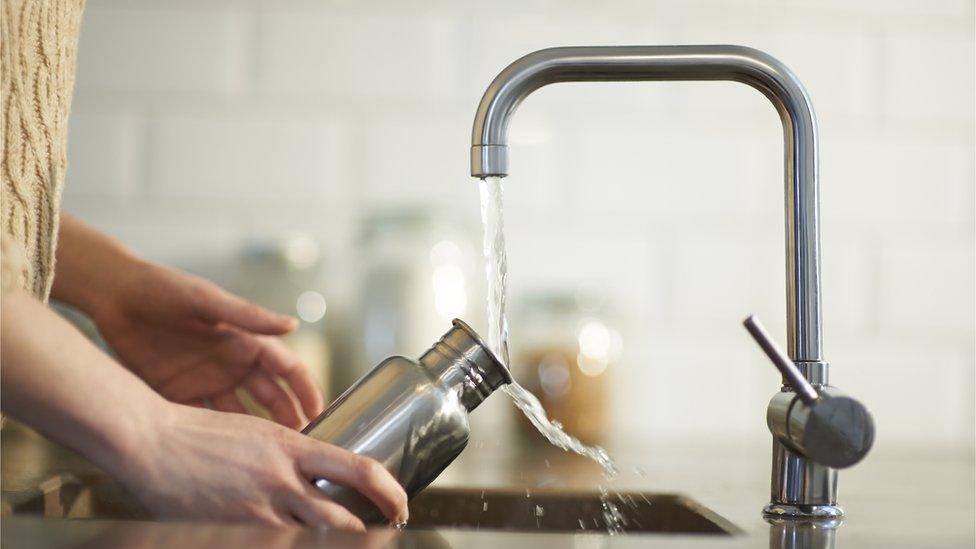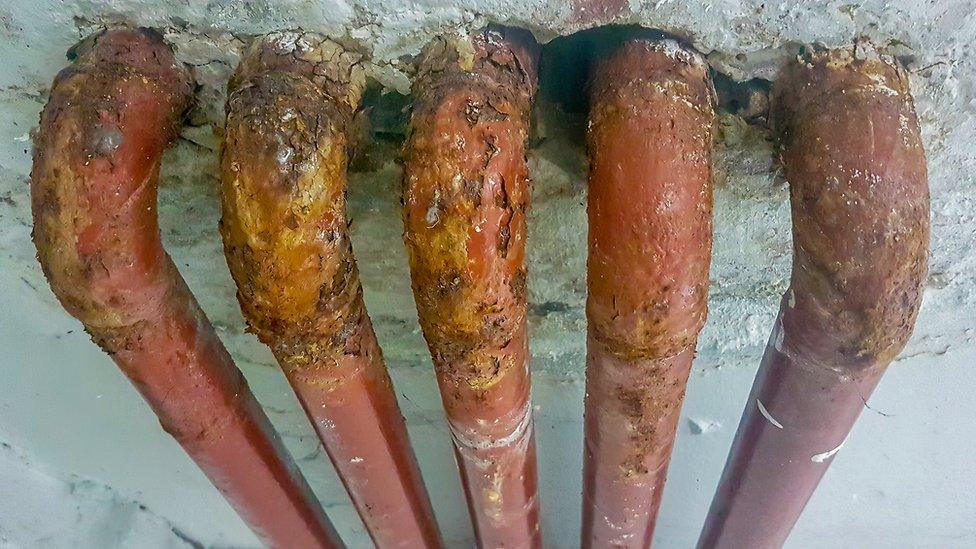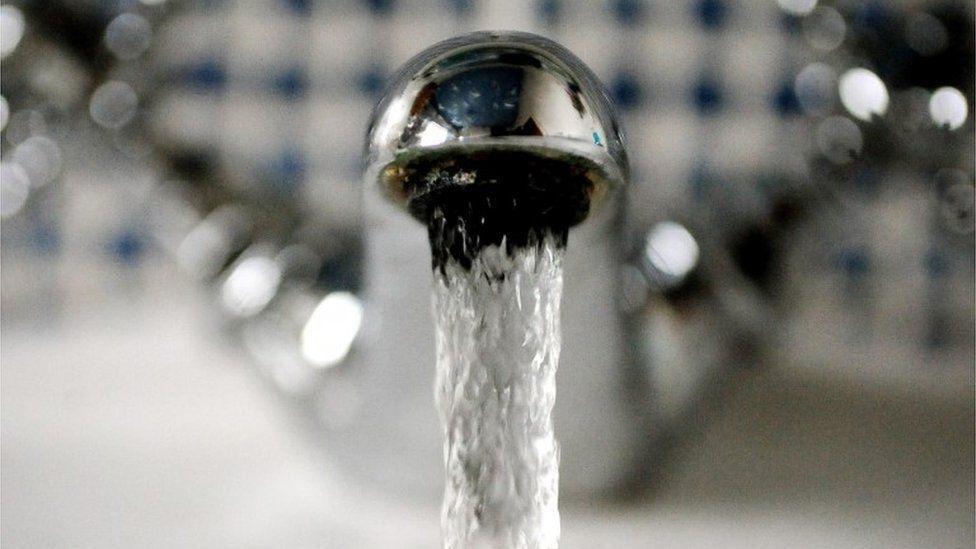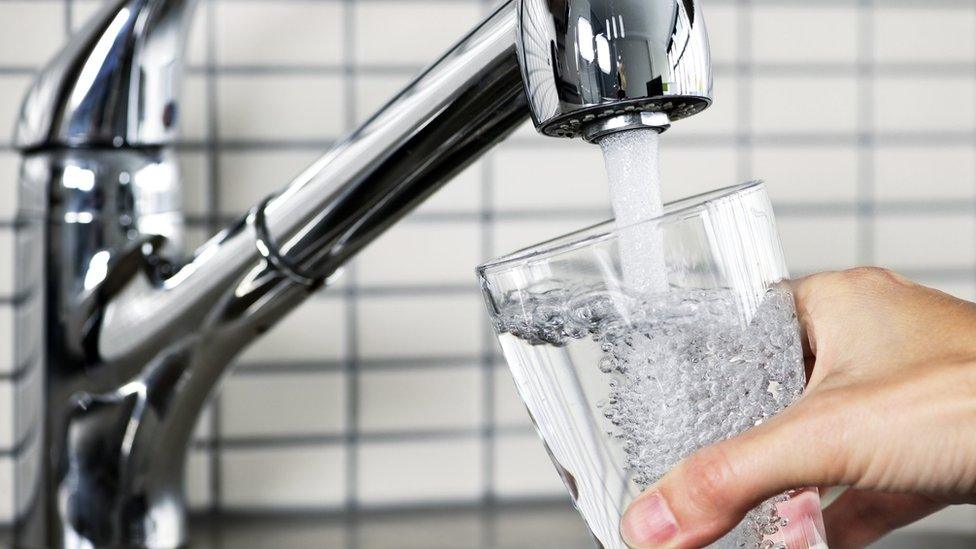Lead pipes: NI Water to review safety information
- Published

NI Water admits there is a potential "small short term risk" when lead pipes are replaced
NI Water will review safety information being sent to people in areas where lead pipes are being replaced.
This follows reports from members of the public regarding increased levels of lead in drinking water.
Alison McMullan, Head of Drinking Water Regulation, told BBC Radio Ulster's On Your Behalf that NI Water accepted there was a "small short term risk" when work was being carried out.
She added that leaflets would be amended with guidance.
Lead pipes are mostly found in homes built before 1970.
NI Water's worst case estimate is that 26% of all properties could still be connected to lead pipes.
That is the equivalent of nearly a quarter of a million homes.

Charlene Hegarty found lead residue in her tap water
Charlene Hegarty did not know there were lead pipes in her Belfast home when she bought it seven years ago.
The 36-year-old made the discovery after finding residue in her water. She contacted NI Water which took a sample for testing.
"My lead reading was 76 when the acceptable standard at the minute is 10. That was really quite alarming."
An academic at Queen's University Belfast, who is researching the extent of lead in the city, said there was no safe level of exposure to the metal.
Dr Tristan Sturm, a senior lecturer in geography, claimed that lead levels could rise by 50% for up to six months and that people should be informed.
One concerned listener contacted On Your Behalf after she received no warning of a potential spike before lead pipes were replaced on her street.
"I have children and many other people in the street have children and I thought gosh we weren't told that there was anything to worry about," said Emily.
She said she received a three page leaflet from NI Water, which indicated changes to parking, possible disruption to water supply and details on the works.
"It was just really alarming to think that there was potentially contamination or spiking lead levels in the water and we had not been informed in any way that that would be a possibility."

Lead pipes are mostly found in homes built before 1970
Ms McMullan of NI Water said that the water company also provided a "standard lead leaflet" but admitted that there was no information on a potential "short term" spike in lead levels.
"It is something we are looking at, it is something that has been noted to us and it is something of customer concern that they would like to have that information available to them."
Ms McMullan did point to NI Water's advice on flushing taps before use following works when water can be discoloured.
She said that research commissioned by the Drinking Water Inspectorate in England and Wales in relation to lead pipe works recommended customers flush their taps for ten minutes before use and for two minutes for the following three days.
Ms McMullan disputed the claims that levels could remain high for six months citing samples taken by NI Water.
She added: "We also advise customers to consider changing lead pipes that are internal in the property because it is the only way to avoid the risk of any lead being present in drinking water."
Related topics
- Published4 November 2022

- Published23 June 2022

- Published19 March 2022
